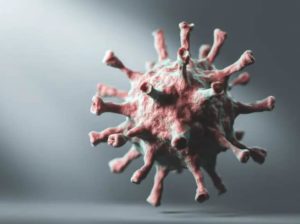Hair loss in women can be caused by hormones, autoimmune diseases, or genetic predisposition.
It is normal for about 100 hairs to fall out every day. But if there are suddenly more than this, then we are dealing with a hair loss situation.
Gender makes little difference to hair loss: it affects both women and men. According to statistics, about 80% of men and about 40% of women in the UK suffer from genetic hair loss, androgenetic alopecia.
However, hereditary hair loss is not always to blame for a sudden increase in hair shedding.
There are many other possible types of hair loss seen in women. For example, an autoimmune medical condition or persistent stress can cause the hair to become thinner and thinner.
Thinning hair in women
If the hair falls out evenly across the scalp, it is called diffuse hair loss. The causes for this are manifold and are usually to be found in your external life circumstances.
Diffuse effluvium can be caused by permanent stress or lack of sleep, or also by malnutrition. Other causes of hair loss include:
- A side effect of medication
- Hormone fluctuations (especially in pregnancy)
- A poor diet (especially iron deficiency or zinc deficiency)
- Smoking
Diffuse hair loss can be treated relatively effectively if the trigger that is making you lose hair is identified. As a rule, as soon as the trigger for hair loss has disappeared, the hair starts to grow again. If the hair has fallen out during a mono diet, for example, a sensible change in nutrition can have quick and positive results.
Hair loss after pregnancy
Hair loss after pregnancy is natural and affects almost every woman. As soon as hormone levels have stabilised again, hair stops falling out.
Hair follicles go through cycles of growth phase and resting phrase. When they switch the to resting phase, the hair falls out, but this is not noticeable as other hairs are still in the growth phase.
During pregnancy, oestrogen and HCG (Human chorionic gonadotropin) levels are greatly increased. This prevents hair from falling out naturally. That is why pregnant women have fuller hair than usual.
Let’s assume that a pregnancy usually lasts around 40 weeks. That is 280 days, during each of which 100 hairs should fall out.
But just half of them fall out because of the high oestrogen level. That is 14,000 hairs that have not fallen out.
These 14,000 additional hairs then do fall out after pregnancy. Therefore, it looks as if you have severe hair loss.
Hair loss after stopping the pill
Discontinuation of the contraceptive pill can also be a cause of hormonally induced hair loss.
The pill interferes with a woman’s hormone balance to prevent a fertilised egg from implanting in the uterus.
Ovulation is switched off. The oestrogen level remains artificially high thanks to the pill, and hair falls out less, the same as in pregnancy. After stopping the pill, the oestrogen level drops. At this point the hair falls out again.
Another reason for increased hair loss after stopping the pill can be that the ovaries suddenly produce more male hormones. This can have a negative effect on hair growth, especially if the woman already has a predisposition to androgenetic alopecia.
Another consequence can be acne and blemished skin.
Furthermore, nutrient deficiencies can cause hair loss. This is because the liver, intestines and thyroid gland must first recover. Taking the pill can also have an effect on these organs.
Alopecia Areata - circular bald spot
To date, the exact causes of circular hair loss have not been clarified. In this autoimmune disease, the patient’s own immune system identifies the hair roots as foreign bodies and attacks them accordingly.
As a result, bald circular patches occur, which can be spread over the head.
There are four types of alopecia:
- Alopecia Ophiasis – hair falls out like a wreath in the neck and ear area.
- Alopecia Areata – circular hair loss.
- Alopecia Totalis – the entire head hair falls out.
- Alopecia Universalis – the entire body hair falls out.
Alopecia areata often occurs in connection with other diseases, for example with white spot disease (vitiligo).
In addition, some people are simply predisposed to alopecia. The disease can occur in episodes, so that those affected can be free of symptoms for a long time, but then the hair suddenly falls out again.
Androgenetic alopecia in women - hair loss during the menopause
Genetic hair loss is what doctors call androgenic alopecia.
Not only men are affected by hormonal and hereditary pattern of hair loss. Women can also suffer from it, only female pattern baldness usually starts much later compared to male pattern baldness. Usually it starts with the onset of the menopause.
As the name suggests, hereditary female pattern hair loss is genetically determined.
Just like in men, the hair roots react sensitively to the androgen dihydrotestosterone (DHT).
This has its origin in the male hormone testosterone.
Until the onset of the menopause, oestrogen keeps this hormone in check.
When the menopause begins, the production of oestrogen decreases, and the hour of testosterone has come.
Unlike in men, hereditary hair loss in women begins along the crown of the head. This area thins out more and more until at some point the scalp shows through.
What to do about hair loss?
Women often suffer badly from the loss of their hair – much more than men.
Even today, beautiful and healthy hair is still considered the female ideal of beauty. Many women look online or among their friends for a support group.
As we said before, the rule with diffuse hair loss is that the hair grows back as soon as the trigger for it has disappeared.
What can I do, however, if my hair doesn’t grow back or I am suffering from hereditary hair loss?
A hair transplant can be a remedy for this, as it is carried out at Cosmedica Clinic, for example. Especially in the case of hereditary hair loss, a hair transplant is a long term and permanent solution.
Only in the case of alopecia areata is such an intervention not possible, as the immune system would immediately attack the freshly transplanted follicles again.
Get a free, no commitment consultation with Dr. Acar at Cosmedica Clinic to discuss your hair loss and see what he can do for you.




